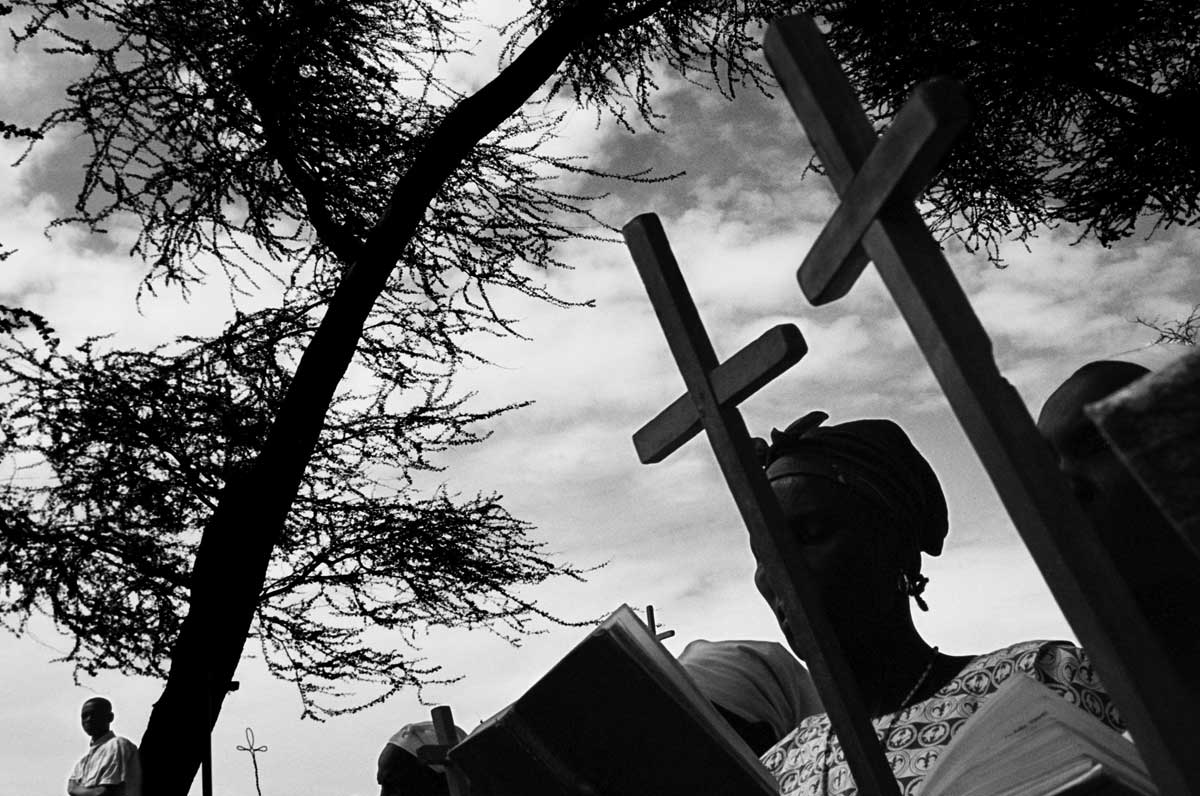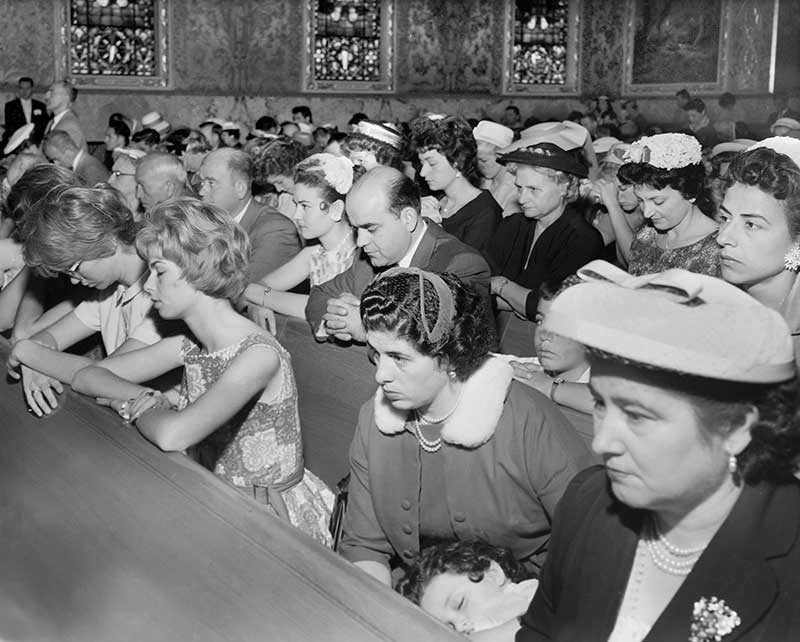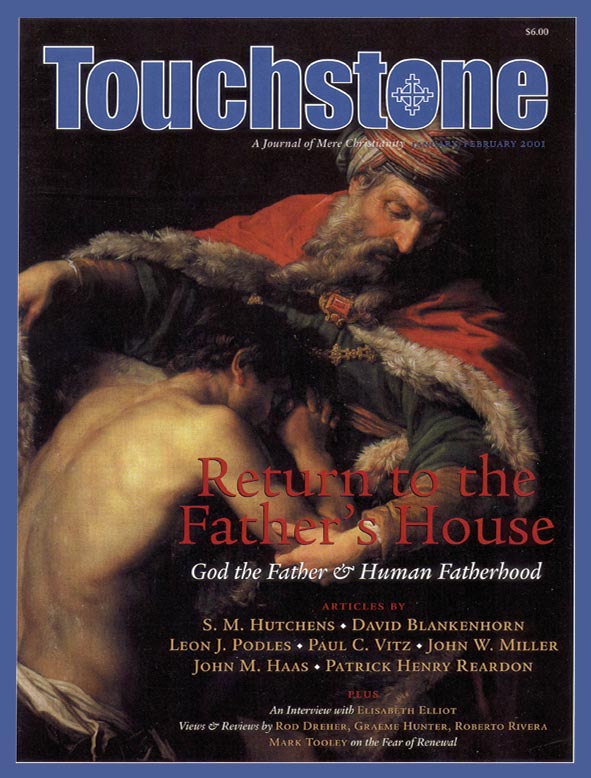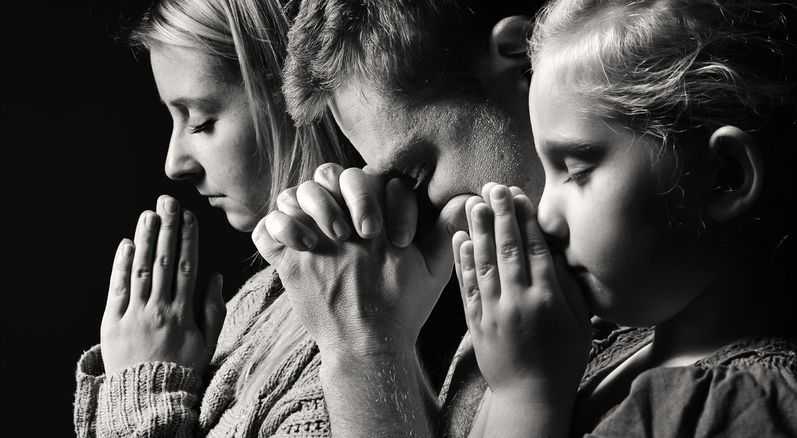Missing Fathers of the Church
The Feminization of the Church & the Need for Christian Fatherhood
by Leon J. Podles
You may have noticed that, in general, men are not as interested in religion as women are. There are usually more women than men at Sunday mass, and there are far more women than men at devotions, retreats, and prayer groups. The men who do come are often there because wives or girlfriends have put pressure on them to attend. In fact, if men speak honestly, they will tell you that men have a general feeling that the Church is for women. They may add that women are more emotional than men are, or that religion is a crutch that a man doesn’t need, as Jesse Ventura, the candidate of young white men, said in Playboy.
In my book, The Church Impotent: The Feminization of Christianity, I examine the lack of men in the Western churches, which only the unobservant doubt, and I look at the possible causes and results of the lack of men. My thought has continued to develop, and I have slightly revised my thesis. In what follows I will first summarize my thesis that men stay away from the Church because they regard it as a threat to their hard-won masculinity. Second, I will explore how the Church has become identified with femininity. Third, I will consider how this feminization has undermined fatherhood, and how the Church can reach men and help them to be Christians and Christian fathers.
I think the lack of men is self-evident, but the reactions to my book have shown me that some people have not noticed and that others choose to deny the obvious because of a feminist, or, what has surprised me, a traditionalist agenda. Sociologists have gathered statistics about both practice and opinion, and the studies confirm the popular impression: religion, especially of the Christian variety, is largely a feminine affair in Western society.
James H. Fichter asks, “Are males really less religious than females? Most of the studies made on the question seem to indicate that they are, and this appears to be true for all the Christian churches, denominations, and sects in western civilization.”1 Michael Argyle generalizes, “Women are more religious than men on all criteria, particularly for private prayer, also for membership, attendance, and attitude.”2 Gail Malmgreen points out the disparity between the gender of the clergy and the gender of the faithful: “In modern Western cultures, religion has been a predominantly female sphere. In nearly every sect and denomination of Christianity, though men monopolized the positions of authority, women had the superior numbers.”3 Christianity is a religion of and for women.
Nor do women simply join churches more than men do. They also are more active and loyal. Of Americans in the mid-1990s, George Barna writes that “women are twice as likely to attend a church service during any given week. Women are also 50 percent more likely than men to say they are ‘religious’ and to state that they are ‘absolutely committed’ to the Christian faith.”4 The differences seem to be increasing rapidly. In 1992, 43 percent of men attended church; in 1996, only 28 percent.5 Patrick Arnold, a Jesuit of liberal theological leanings, claims that at churches he has visited, “it is not at all unusual to find a female-to-male ratio of 2:1 or 3:1. I have seen ratios in parish churches as high as 7:1.” Women are more active in all activities of the church, both in public and social activities, such as peace and justice committees, and in spiritual activities, such as prayer and Bible study.
Church attendance in the United States is about 60 percent female and 40 percent male. The more liberal the denomination, the higher the percentage of females. Fundamentalists are almost evenly divided, but the only religions that sometimes show a majority of men are Eastern Orthodoxy, Orthodox Judaism, Islam, and Eastern religions such as Buddhism. Men say they believe in God as much as women do, but the more Christian a practice or belief becomes, the fewer men will own up to it. Men go to church less than women do, they pray far less than women do, and they believe in the afterlife and heaven and hell far less than women do.
The difference is neither recent nor limited to North America. In seventeenth-century New England, Cotton Mather puzzled over why his congregations were overwhelmingly female. Nor is the United States the worst off. Latin men are notoriously resistant to going to church.6 In one conservative Spanish village, for a man to be outstandingly religious is considered shameful. A man is humiliated, pasar vergüenza, if he is in debt, or “if he is seen in church holding a rosary, or sitting in the front benches in church.”7 A man can be a Catholic without disgrace, but to be outwardly religious is incompatible with masculinity. All over Europe the pattern is the same. In England, the difference has been growing: “the imbalance between the sexes is becoming more rather than less marked in contemporary society.”8 The difference can be traced back as far as there are statistics about church involvement—not only a difference in outward observance, but also in belief: far more women than men subscribe to basic Christian beliefs.9
In modern France the church is the domain of women. This was the situation after France had recovered from its bout of extreme anti-clericalism in the nineteenth century. The difference between men and women grew less in the mid-twentieth century, in part because more men were going to church, and in part because fewer women were going to church.10
The situation was even worse in the nineteenth century when anti-clericalism was in full rage. In 1858 the rector of Montpellier lamented that “religious duties are almost completely neglected by the men or practiced only for appearance’s sake. Generally only women observe their duties.”11 He said this because only 15 percent of the men made their Easter duty. In 1877, in the western part of the diocese of Orléans, only 4.7 percent of the men made their Easter Communion, although 26 percent of the women did.12
The strategy of the French Church has been to maintain a presence in society through the influence of women.13 This strategic decision even has affected doctrine. The Church had from time immemorial condemned contraception. But in France, peasants practiced coitus interruptus to limit the division of their inheritance. Acting on the advice of Alphonse de Ligouri, confessors decided that women were not guilty if their husbands practiced this form of contraception. This decision was based on a fear that rigorism would alienate women, and that the Church would thereby lose all influence in French society. In 1842 the Trappist (and doctor) Debryne argued against a rigorist position on the use of contraception: “One should give serious attention to this; that one should not alienate women through an imprudent rigor; the matter is one of immense importance. The coming generation is in the hands of women; the future belongs to her. If the woman gets away from us [the ‘us’ seems to be his priest readers], with her everything will disappear and vanish into the abyss of atheism—faith, morality, and our whole civilization.”14
Leon J. Podles holds a Ph.D. in English from the University of Virginia, has worked as a teacher and a federal investigator, and is president of the Crossland Foundation. He is the author of The Church Impotent (Spence), Sacrilege (Crossland Press), and Losing the Good Portion: Why Men Are Alienated from Christianity (St. Augustine Press). Dr. Podles and his wife have six children and live in Baltimore, Maryland. He is a senior editor of Touchstone.
subscription options
Order
Print/Online Subscription

Get six issues (one year) of Touchstone PLUS full online access including pdf downloads for only $39.95. That's only $3.34 per month!
Order
Online Only
Subscription

Get a one-year full-access subscription to the Touchstone online archives for only $19.95. That's only $1.66 per month!
bulk subscriptions
Order Touchstone subscriptions in bulk and save $10 per sub! Each subscription includes 6 issues of Touchstone plus full online access to touchstonemag.com—including archives, videos, and pdf downloads of recent issues for only $29.95 each! Great for churches or study groups.
Transactions will be processed on a secure server.
more on fatherhood from the online archives
more from the online archives

27.3—May/June 2014
Religious Freedom & Why It Matters
Working in the Spirit of John Leland by Robert P. George
calling all readers
Please Donate
"There are magazines worth reading but few worth saving . . . Touchstone is just such a magazine."
—Alice von Hildebrand
"Here we do not concede one square millimeter of territory to falsehood, folly, contemporary sentimentality, or fashion. We speak the truth, and let God be our judge. . . . Touchstone is the one committedly Christian conservative journal."
—Anthony Esolen, Touchstone senior editor













